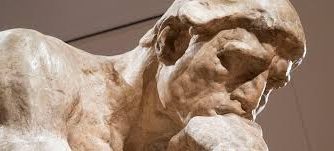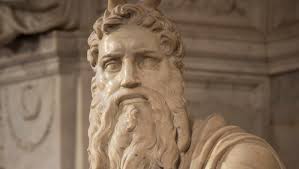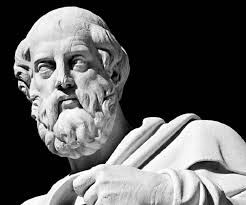I was stunned and disappointed (and righteously disgusted) when I read the sentence in the blogger’s post that I gasped and then read it again—twice—to let it sink in.
And then I thought: No wonder people act the way they do, and none of us trust one another. This problem is more rampant than I imagined.
The blogger that wrote the alarming sentence is a successful freelance writer from Australia that I admire and follow, for freelance writing and pitching tips.
She was talking about the on-line training course she’d been putting together and is close to launching, and some horrible advice she got about teaching online course.
This is the sentence that stunned me.
“I’ve ignored the advice of a prominent online course creator who told me that I should be giving as little of myself as possible (in order to make the most money), but this just doesn’t feel right to me.”
Wow! A prominent course creator told her to give as little of herself as possible to the teaching of the students that have paid their hard-earned cash to have her teach them?
Unbelievable. I am SO glad it just didn’t feel right to her. Because it’s not!
Now I respect her even more.
As believers, if we’re at all tempted to do this to be able to make more money, we need to do some serious soul searching.
In all ways and in all things we should be giving ALL of ourselves, wholeheartedly to what we’re doing, not with the accolades of people in mind, but with the joy and glory of—and to—the Lord.
There are several Bible passages that come to mind that teach this virtue:
Ecclesiastes 9:10 admonishes us:
“Whatever your hand finds to do, do it with all your might, for in the realm of the dead, where you are going, there is neither working nor planning nor knowledge nor wisdom.” (italics mine)
That sounds a little morbid, but let’s look at what the Apostle Paul tells believers in Colossians 3:23:
“Whatever you do, work at it with all your heart, [enthusiastically], as though you were working for the Lord and not for people.”
I can only imagine what God thinks of us when we take the kind of attitude that we’re only going to give 50% to something that someone else is paying us to do for them.
I remember back 23 years ago back in California, when a roofer and his apprentice were fixing our leaking roof back. I padded outside to see how things were going and heard the business owner (the roofer) say to his apprentice:
“Come on. We need to work harder and do the best job we can for these folks. They’re paying us good money and expecting us to do a good job.”
His apprentice perked up and sped up and paid attention to his work.
I so appreciated their work ethic. He was right. We were paying them good money to get a job done for us, as quickly and as well as they could. And his work was perfect. He finished the work ahead of schedule. And we never had another leak.
Sadly, this attitude doesn’t surprise me. Just look around you. Notice how the customer service attention and care has plummeted, right along with the attitude of the people you’re paying to help you or who provide a service for you. The general implosion of good behavior, kind manners and social/business etiquette; the self-serving attitude running rampant around the world.
I get the fact that for a variety of reasons—illness, fatigue, frustration, resentment, misunderstanding, you name it—most of us will fail to do our best jobs 100% of the time at whatever we’re setting our hands to do.
When that happens, we can be convicted, ask for forgiveness and focus on doing a better job the next time.
What I’m addressing here is the deliberate, self-serving (selfish) plan to give less than 100% right from the start.
All that we do should be done well, as unto God, throwing our whole soul into it and looking to him alone for praise, and gratification of a job well done.
One final note: Aristotle had something to say about this too.
“Quality is not an act, it is a habit.”
Amen to the habit of always aiming for quality!
I’ll hop off my soapbox now and tuck it away for another time. But I pray that each of us carefully considers what we do and how we do it, and the One watching. He’s the One we aim to please, and He’s watching.
Don’t let your witness for Him be damaged by deliberate deception.
Until next week, do with all your might whatever you set your hands to do.
Blessings,
Andrea
Andrea Arthur Owan is an award-winning inspirational writer, fitness pro and chaplain. She writes and works to help people live their best lives—physically, emotionally, and spiritually.



 ARISTOTLE (384 – 322 B.C.)—Also a Greek, Aristotle was the first to systematically describe physics, biology, psychology, and the standards of literature. He was also the first true empiricist—one who believes in the scientific method of forming a hypothesis from observations and beliefs, asking a question, designing research to test the hypothesis, doing the research to gather data, and forming a conclusion based on the research findings. He is also identified as one of the first agnostics—someone unsure about whether there really is a living God.
ARISTOTLE (384 – 322 B.C.)—Also a Greek, Aristotle was the first to systematically describe physics, biology, psychology, and the standards of literature. He was also the first true empiricist—one who believes in the scientific method of forming a hypothesis from observations and beliefs, asking a question, designing research to test the hypothesis, doing the research to gather data, and forming a conclusion based on the research findings. He is also identified as one of the first agnostics—someone unsure about whether there really is a living God. AUGUSTINE (A.D. 354 – 430)—While St. Augustine of Hippo originally struggled to “find” faith in Christianity, he later became one of the most important and well-known theologians in Christian history. He also addressed the tug-of-war between science and religion.
AUGUSTINE (A.D. 354 – 430)—While St. Augustine of Hippo originally struggled to “find” faith in Christianity, he later became one of the most important and well-known theologians in Christian history. He also addressed the tug-of-war between science and religion.

 DAVID HUME (1711 – 1776)—Hume, a Scotsman, thought the entire world is formed from the perception of our sensory experiences and believed everything had to be measured and replicated in order to believed, He doubted that we could ever really know anything with certainty. Consequently, he believed that the miraculous, and whether God existed, were irrelevant discussions.
DAVID HUME (1711 – 1776)—Hume, a Scotsman, thought the entire world is formed from the perception of our sensory experiences and believed everything had to be measured and replicated in order to believed, He doubted that we could ever really know anything with certainty. Consequently, he believed that the miraculous, and whether God existed, were irrelevant discussions.
